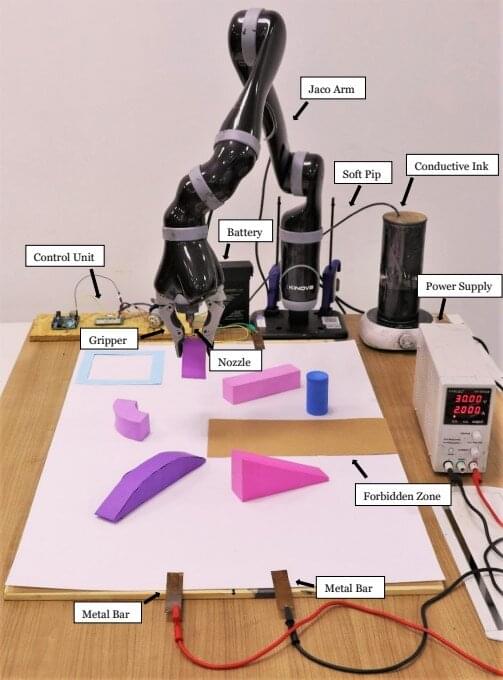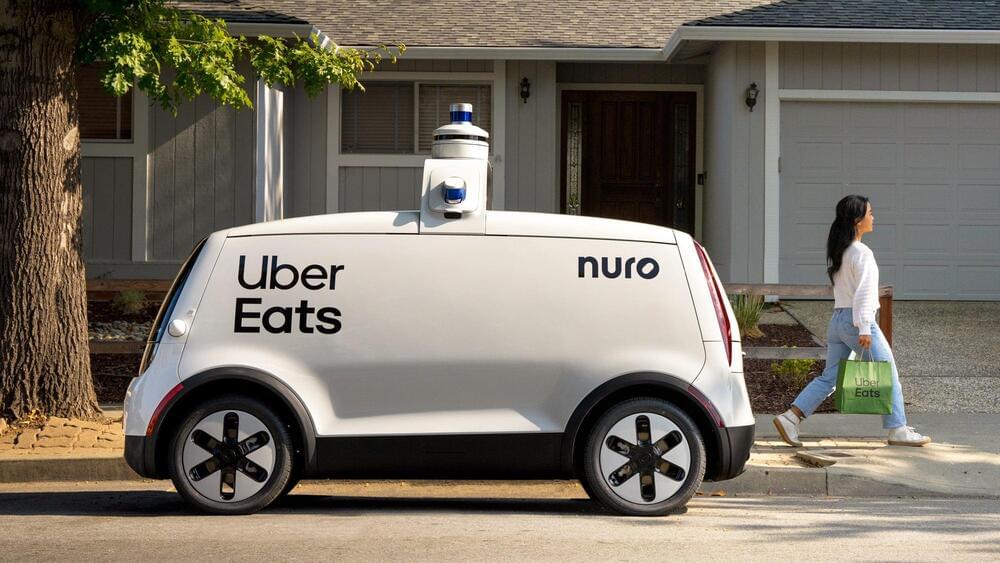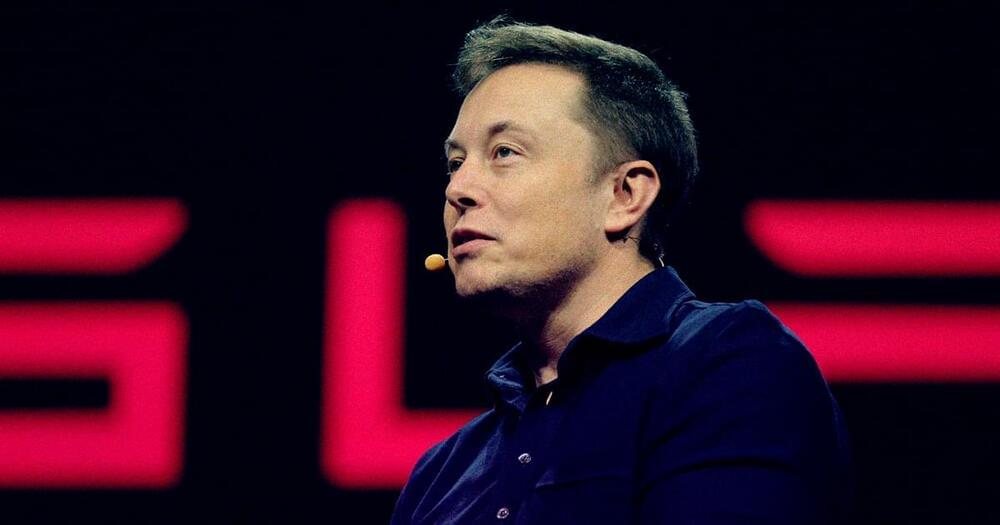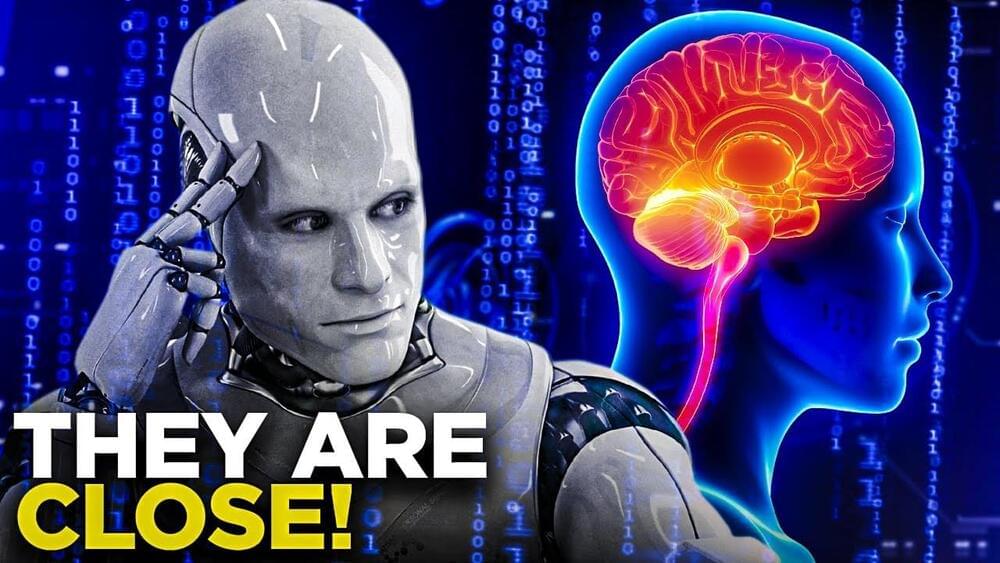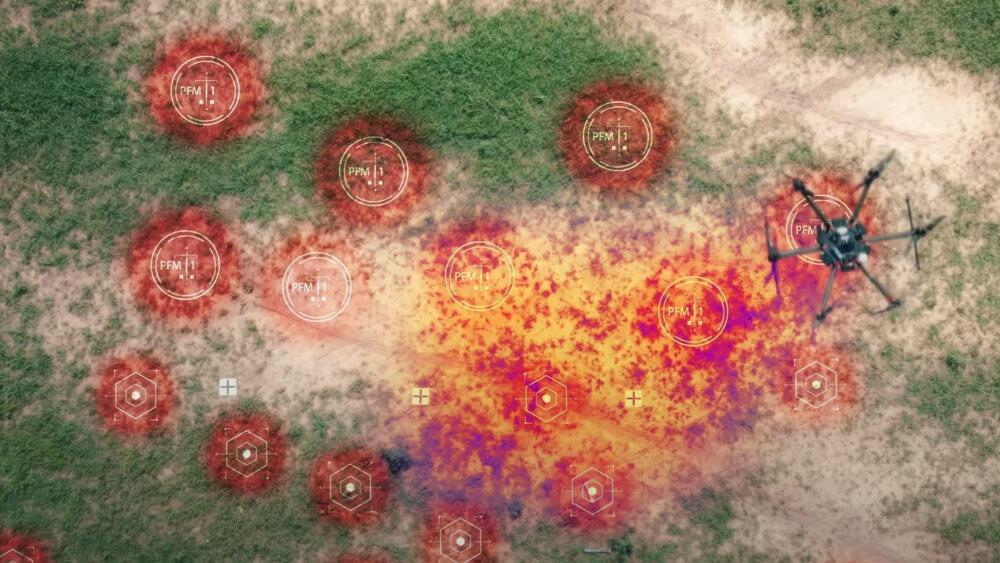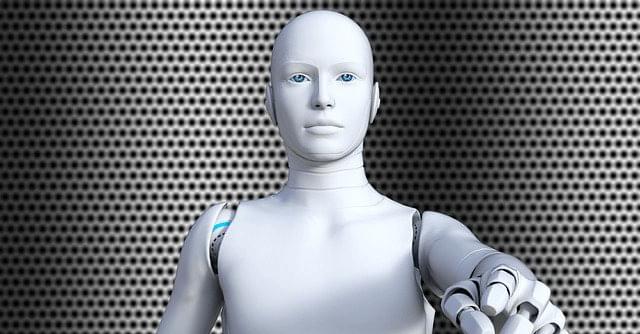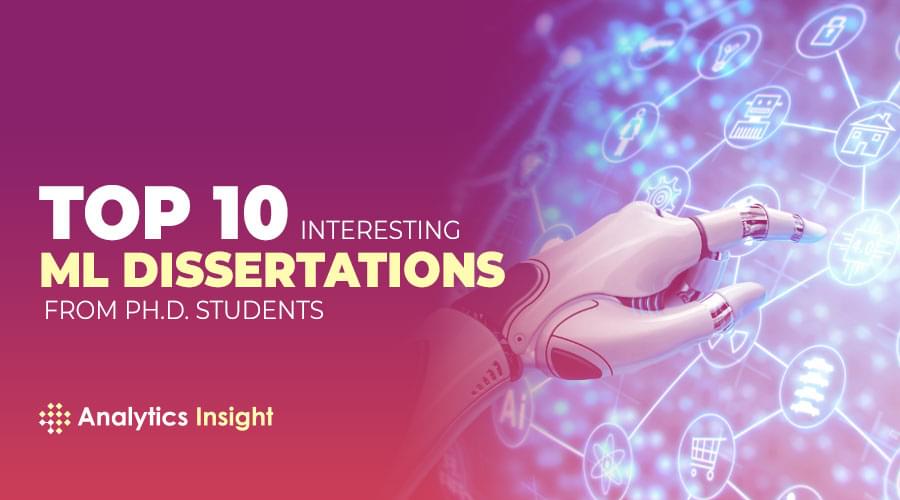Sep 12, 2022
A robot that draws circuits with conductive ink to survive
Posted by Jose Ruben Rodriguez Fuentes in category: robotics/AI
Recent technological advancements have paved the way for the creation of increasingly sophisticated robotic systems designed to autonomously complete missions in different familiar and unfamiliar environments. Robots meant to operate in uncertain or remote environments could greatly benefit from the ability to actively acquire electrical power from their surroundings.
Researchers at Worcester Polytechnic Institute, Imperial College London, and University of Illinois Urbana Champaign have recently developed a new robotic system that can visually rearrange its surroundings to receive the maximum amount of energy from a given power source. This robot, presented in a paper pre-published on arXiv and set to be presented at the IEEE International Conference on Robotics and Biomimetics, works by drawing electrical circuits using conductive ink.
Continue reading “A robot that draws circuits with conductive ink to survive” »
